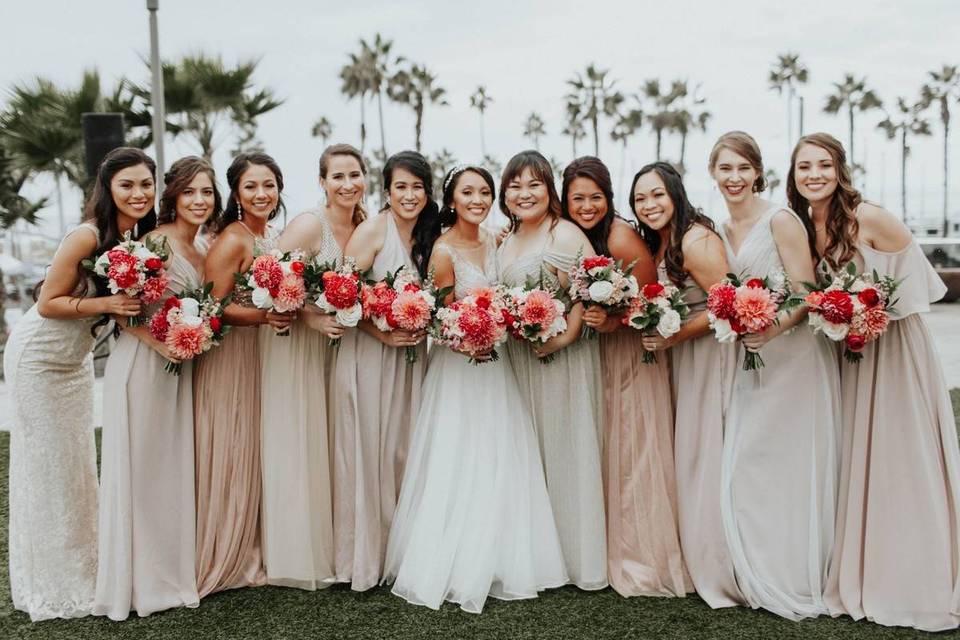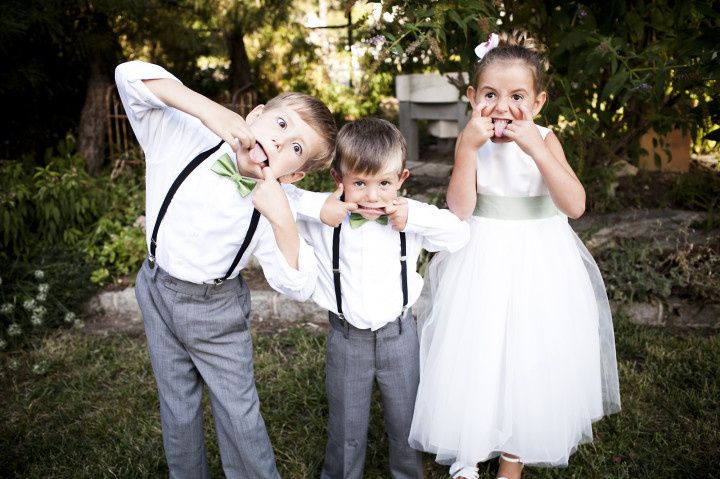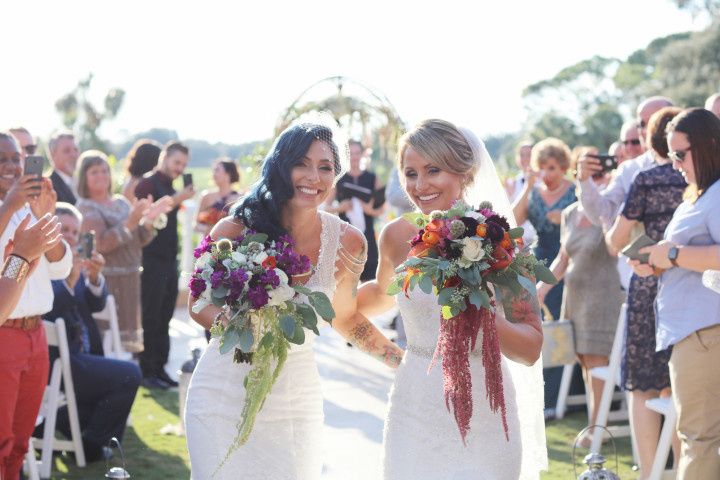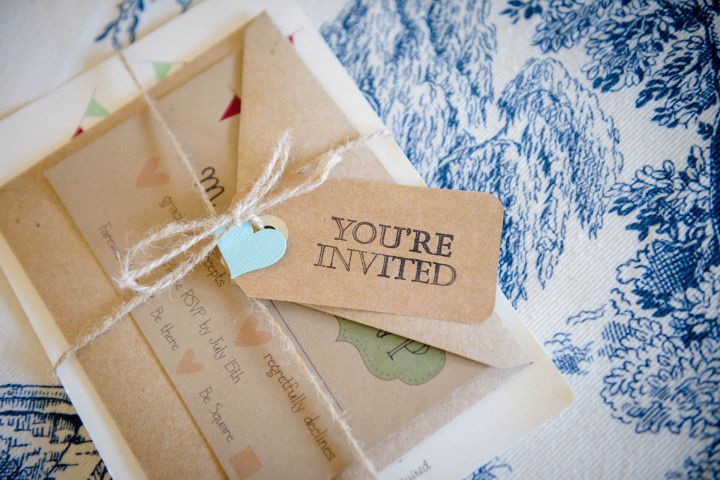The 16 Most-Asked Wedding Etiquette Questions, Answered
While there are some wedding etiquette “rules” that may feel outdated, there are some tried-and-true tips that are around for a reason.
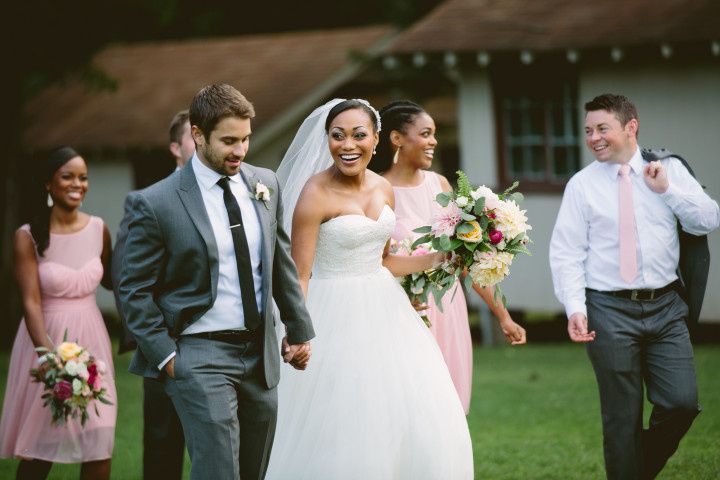
Why do many couples find wedding planning stressful? The answer is simple. You’re dealing with a lot of money (your budget) and a lot of people (your guests). So your biggest challenge is to create an event that feels true to you and your future spouse, while making sure your loved ones are happy and not blowing your life savings in the process. That’s where the idea of wedding etiquette comes in. While there are some wedding etiquette “rules” that may feel outdated (for example, seating guests on opposite sides at the ceremony, depending on their relationship with the couple), there are some tried-and-true wedding etiquette standards that are still around for good reason.
Check out some of the most-asked wedding etiquette questions, and our (realistic) answers.
Who pays for the wedding?
Yes, there are the traditional “who pays for what” breakdown, but couples nowadays rarely follow these wedding etiquette rules exactly. In fact, half of couples pay for the majority of their wedding themselves. Parents or other loved ones can contribute in a variety of ways, from paying for the entire wedding to just paying for specific wedding-related products or services to paying for events like the rehearsal dinner to not contributing at all. Remember that anyone who pays for the wedding does get a say in whatever it is they’re paying for. So if your parents are paying for your venue rental fee, you need to make sure they’re happy with the wedding location you choose.
How do I ask my parents to contribute to my wedding?
Very politely. Sometimes parents will willingly express their desire to assist with the wedding budget, but you may need to make the first move. Prepare your parents in advance for the conversation (don’t just spring it on them at Thanksgiving dinner, for example). When asking your parents about this potentially sensitive subject, first ask them if (not how much) they would be able to contribute. If they say say yes, be prepared to discuss how much they would be comfortably be able to spend, or what areas of the wedding they’d like to pay for. It’s a good idea to have some knowledge of what certain wedding-related services cost, so that you can give your parents’ an idea at the initial conversation. Whatever the outcome of the conversation is, be as appreciative and grateful as possible.
Can I create A and B guest lists?
Sometimes couples create A and B guest lists to create a “hierarchy” of sorts when it comes to their guests. Think of the B list as a waitlist for your wedding— everyone on the A list gets invited, but if someone on that list can’t make it, a member of the B list receives an invite later on.
Our view on this style of guest list wedding etiquette? It can work for some people, but for most it can be dangerous. People have a tendency to find out if they’ve been invited late to a wedding. At best, it will leave a bad taste in their mouths. At worst, they’ll be genuinely insulted at being “second-place” guests.
Our recommendation is to only use the A and B lists when you’re initially creating your guest list. These lists should only be used to help you prioritize and should remain private, just between you and your future spouse. If your A list ends up with fewer guests than you anticipated, you can add guests from the B list until you have a final guest list you’re satisfied with. But once you send out your invitations, that’s it—don’t invite any additional guests just because members of the A list declined.
Can I fire a bridesmaid/groomsman/wedding party member?
If there’s a member of your wedding party who’s causing drama, your first instinct may to be cut them loose. Our opinion? Think long and hard before you decide to “fire” a wedding party member. If you do give them the heave-ho, your relationship is probably over. Are you okay with that? Unless they’ve done something truly horrible, we would err on the side of keeping them in the party but perhaps having a heart-to-heart about any lingering issues.
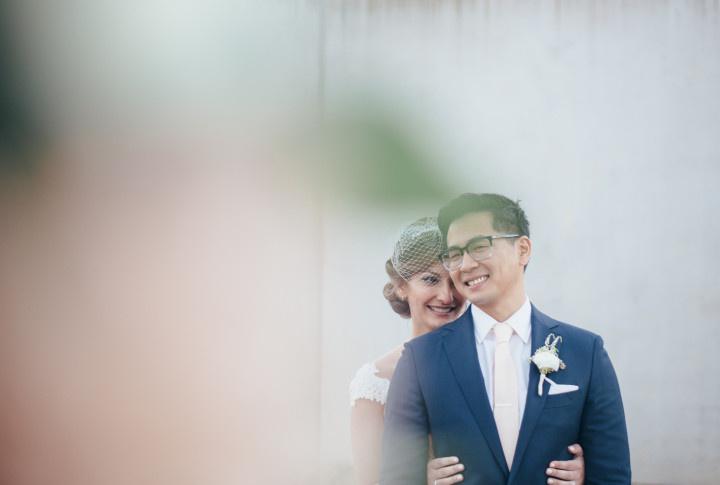
Can I put registry information on my invitations?
Nope. Printing your registry information on any invitation that you’re sending out looks like you’re directly asking for gifts. And that shouldn’t be what your wedding is all about. For a wedding etiquette-friendly alternative, put your registry information on your wedding website and share the link with your guests.
I was in the wedding party for a friend a long time ago, but we’re no longer close. Do I have to ask them to be in my wedding party?
Your wedding party members should include friends and family members you’re close with now. You shouldn’t feel like you have to ask someone to be in your party because you were in theirs. And think about it—in most cases, it's doubtful that your former friend will want to be in your wedding party if you're not close. They probably won't know your fellow wedding party members, and it could be an awkward experience for all.
When do I send thank-you notes?
You may have heard that you have a year after your wedding to write your thank-you notes. Please don’t wait that long. Your guests will wonder if you received their gifts in the first place. We recommend writing your thank-yous within two or three weeks for gifts received before the wedding. After the wedding, you have a bit more wiggle room, but we don’t recommend waiting more than a month or so.
Do I have to give my single guests plus-ones?
It depends. Guests who are unmarried but in long-term relationships (even if you haven’t met their significant other) should be invited with a plus-one. If you have guests who are in newer relationships or not in a relationship at all, it’s your call—but we recommend making a rule and sticking to it. If you’re not going to invite plus-ones for guests who aren’t in long-term relationships, don’t make exceptions.
Also, think about your guest list as a whole. If you are inviting mostly married couples, you may want to allow plus-ones as a courtesy to your single guests who might feel more comfortable bringing a date. But if your guest list is mostly single folks, than plus-ones might not be as necessary.
Do I have to invite kids?
Again, it’s all about making a rule and sticking to it. If you’re saying “no kids,” then don’t make any exceptions—even if your cousin Leslie begs to bring her adorable little ones. The only reasonable exception is if you have a handful of children who are in your very close family (your own kids, siblings, nieces and nephews) and are in the wedding party. You can invite these little ones but then say no to the rest, if you so choose.
Do I have to invite my co-workers?
If you are friends with your colleagues outside of the office invite them by all means. But if you aren’t super-close with your colleagues, then don’t feel that you must invite them—it really depends on the politics of your workplace. However, if you are planning on inviting a few work colleagues, you should include your boss as well. Your wedding will likely be a topic of conversation around your office, and you don’t want things to become awkward if your boss isn’t on the guest list along with the rest of your co-workers. If you’re not inviting anyone from work, that’s totally fine—just keep the wedding convos to a minimum.
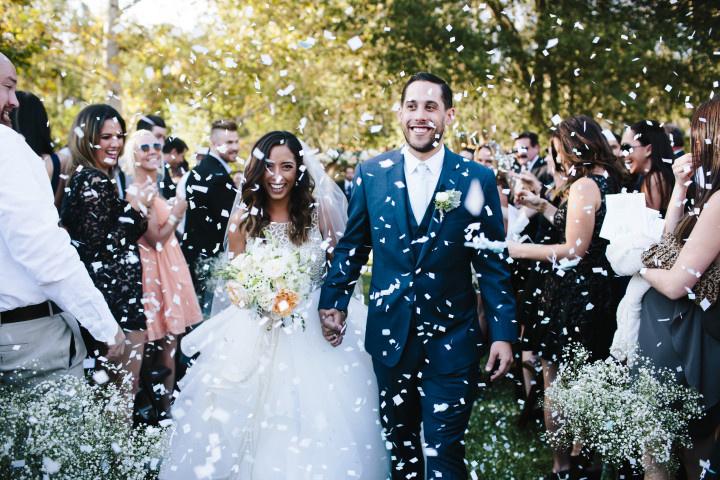
Can I invite someone to a shower who isn’t invited to the wedding?
All those who are invited to pre-wedding events should be on the wedding guest list. The only, rare, exceptions is if you’re having a very small destination wedding with just immediate family and everyone is aware of that already. But in most cases, your shower invitation list should reflect your wedding guest list to avoid confusion and hurt feelings.
Do I have to provide meals to my wedding vendors?
Yes indeed. Again, it’s an extra expense, but your vendors are working hard to make sure your wedding day runs smoothly—so they deserve a hot meal and a break. Your caterer, wedding planner, and/or venue coordinator can assist you with making the arrangements, but vendor meals are a definite must for your reception.
How do I deal with guests who want to bring people to the wedding who aren’t invited?
You’re likely going to have to have an awkward conversation with them—or, depending on your relationship with the guest, you can delegate the conversation to your parents or future spouse. Your best bet is to blame your budget or your venue’s capacity as the reason why you can’t accommodate additional guests. These are concrete reasons that your guests will have difficulty arguing with.
Who do I invite to the rehearsal dinner?
When it comes to your rehearsal dinner guest list, you have some options here but it really depends on your budget. Some couples choose to invite just their immediate family and wedding party members. Others invite out-of-town guests as well. Still others invite the whole guest list. If you’re not able to invite all of your guests (which is totally fine), we like the idea of having an intimate rehearsal dinner followed by an after-party at a local bar where you can welcome everyone without paying for meals for the whole crew.
Can I ask for cash instead of gifts?
Your best bet is to set up a cash registry, which allows guests to contribute to a particular large purchase, like a down payment on a new house, or a car. Know that some guests will want to buy you gifts instead of cash, so you should probably set up a traditional registry in addition to your cash registry.

